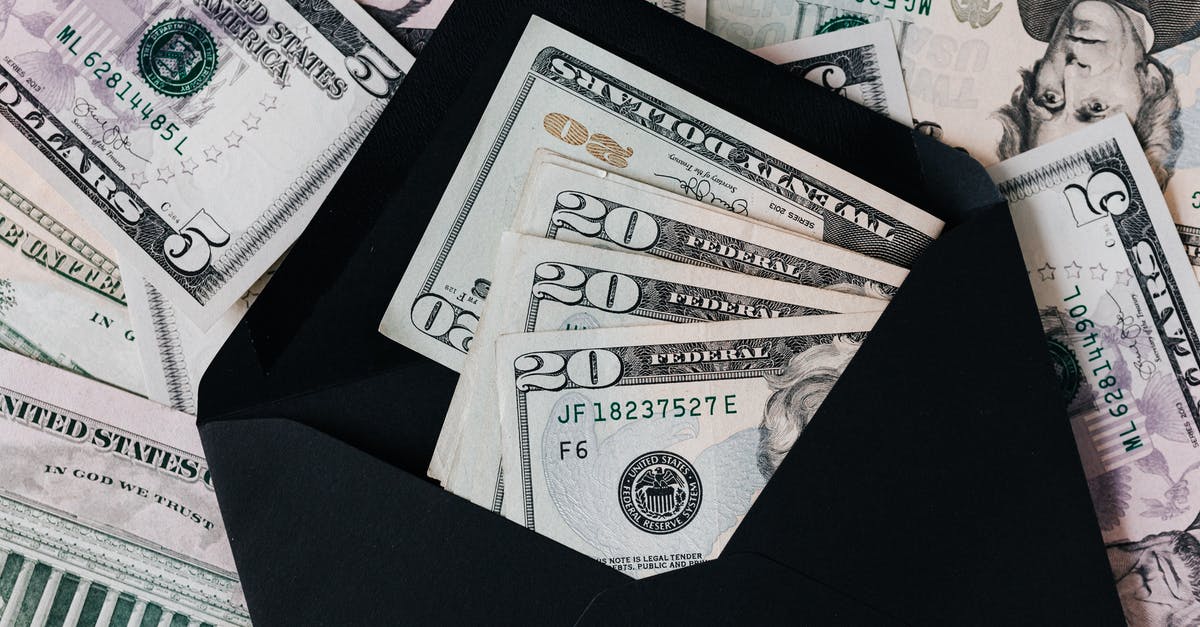Fedex Taiwan bound duties, taxes on personal package?

I live in California and purchased a laptop which was received at home and I arranged to have shipped to me in Taiwan via Fedex in original packaging.
Fedex in Taipei has had the package several days, reporting their representative is reviewing the duties, asking what the electronics technical details are, etc. Given this information is well published by the manufacturer and on Wikipedia, and the clear documentation, and the original clear packaging, I am unclear what is happening. I am told by the senders to expect to pay duties or some sort of fee which I do not understand and Fedex seems unable to explain to me by their Taipei staff so far.
What is customary to expect when I have personal electronics shipped to Taiwan for my person use abroad? What is the type and purpose of any fees (what am I paying for) and what should I expect those things to be specifically? Should I be questioning and expect personal shipments of packages treated differently than if carried in my airline luggage?
Update: received the package the last day of the contract timeframe. A nominal fee was included of about $47US. If the question belongs in a different part of Stackexchange please clearly state what that place is any if it's not obvious to a traveler why that is the right place as well--thanks very much.
Best Answer
Many countries have the concept of a "consumer tax". It can:
- Have many different names (sales tax in the US, GST in Australia and a number of other countries, VAT in the EU and many other countries...)
- Have different rates (from a fraction of a % to nearly 30%). Sometimes different rates for different products (e.g. food may be taxed less), sometimes different rates based on where you are as there may be an aggregation of federal, state, county and city taxes.
- Either be included in the price shown to consumers (e.g. VAT in the EU) or added on top of the price displayed (e.g. sales tax in the US).
But the principle remains the same: when you buy something, a percentage of the price goes to the state as tax.
To avoid people circumventing this by buying abroad, the same tax is also levied on imports.
There are also "duties" or "tariffs". Those are paid by the importer, and in many cases you don't see that at all as a consumer when you buy in-country. In each country, the amount varies based on the type of product and where it comes from. Each country will have a looooooong list of rates (usually percentages, but in some cases fixed amounts per volume/weight), based on a classification of products and countries of origin (that's where the famous free-trade agreements come in: they are the ones that reduce the amount of tax to be paid for imports of specific goods from specific countries). When you buy something in a store, this will have been paid by the importer and be included in the price shown, but of course when you import it yourself, you have to pay it directly.
Computing duty requires knowing exactly what the product is to match it against the list of rates. Sometimes a very small change in the description can be the difference between paying 20% duty and paying none at all. There's also some complexity on the "country of origin" of the goods (is it where it was shipped from, where it was manufactured...). With the appropriate documentation this can be processed automatically even before the package left the sender's country. Without it, it may takes ages to process with customs and the handling agent.
Here's the Tariff database for Taiwan. Be patient, it's slow to load. Categories range from live cows to fuel elements for nuclear reactors. Categories are supposed to be normalised worldwide, but, hey, you know how that works out.
For some specific goods (especially tobacco and alcohol), there may be additional taxes as well, but I won't go into the specifics here. Ditto for cars.
There are also administrative or handling fees, either added by the government (usually a very small percentage) or by the agent processing the import (often quite expensive).
Whether you have already paid tax elsewhere is irrelevant: the country you are importing the goods into want their money, they don't care if another country already got some. Also they want to avoid people buying from countries where the tax rates are lower to avoid paying tax locally.
Note that in many cases you can actually reclaim (some of) the tax in the original country (or not pay it at all if the seller shipped it directly abroad), though this may require specific procedures (e.g. filling a form when you buy it, not using the product before exporting it and/or a time limit before export it, etc.). This usually is only available to non-residents of the country you are exporting the goods out of.
There are of course the special cases of customs unions where in theory there are no taxes when moving things from one country to another, but there are so many rules and exceptions that we will set this aside.
There are usually two exceptions to taxes on imports:
Temporary importation: if you're a non-resident, short-term visitor, there are ways to not pay the tax on imported goods. For non-residents, it is usually implicit for any goods for your personal use you carry with you when you arrive and intend to take back out of the country when you leave (that's what you usually don't pay tax on all your clothes, your suitcase, your phone, your watch...). But customs can check what you import and make a decision that some products you have don't seem to be for personal use (e.g. you have 10 phones in original packaging in your suitcase). For higher value goods when customs are not so sure you will leave back with them again, you may have to declare things when you arrive, pay tax, and then reclaim it back when you leave. In some situations, an ATA Carnet can simplify this a lot.
When you are not carrying the goods with you (but have them shipped by post or a courrier), they are presumed to be for final import, i.e. intended to remain in the country, and be taxable. In some countries there are procedures to specify that they are personal items for temporary import and avoid paying taxes, though it may be a hassle. There was a question on this recently (in India I think) but I can't seem to find it.
Minimum amount: because handling tax for very small amounts is a hassle and not economically viable, there are in many cases allowances. There are usually 3 types of allowances:
Those for goods you carry with you when you enter the country (the so-called "duty-free allowances" or "traveller's allowances"), which are usually a set amount of currency, with the exception of alcohol or tobacco where the limit is a quantity (number of cigarettes, litres of alcohol...). The threshold is usually the equivalent of a few hundred $/€/£.
Those for goods imported by post. It may be expressed either as a threshold on the value of the goods or on the amount of tax payable. In many cases it is implicit rather than explicit: many packages will go through without being taxed, but you never really know why, so you get the surprise when the postman delivers it.
Those for goods imported by courrier (Fedex, DHL, UPS, etc.). In some countries the rules are the same as for postal imports, in others they are different. There are often less exceptions (or none at all) for those imports.
The postal service or courrier may also add their own fees. They are sometimes very expensive compared to the actual amount of tax.
Depending on the country and carrier (and service and sender and recipient), there can be two ways to process this on import:
The carrier informs you that there is a package for you and that there are taxes to be paid. They give you the amount, you pay, they pay the government, the package is released by customs, they deliver it.
The carrier pays the tax in advance, and then asks you pay the amount. Sometimes in COD fashion (postman will want you to pay the tax before giving you the package), sometimes (usually for businesses which have an account with the carrier) later on.
In both cases they will tell you the exact amount of tax and fees to pay, though, as in your case, they may need more information to properly classify the product, properly declare it, and compute the right amount of tax.
There's also the case when the seller will pay the tax (though of course, indirectly, you will have paid it). That's what happens when you use the Amazon Global service for instance: Amazon pre-estimates the amount of tax, charge you for it at time of order, and when it goes through customs the required tax is paid directly. In the case of Amazon Global, IIRC they will never charge you more than the estimated and pre-paid amount (Amazon will make up the difference if they got it wrong), and will refund the difference if the amount of tax is lower than the estimate.
As you can see, what looks like a simple problem is actually a complex web of rules and regulations.
Pictures about "Fedex Taiwan bound duties, taxes on personal package?"



Why do I have to pay duty and tax FedEx?
FedEx pays the Duty and Tax charges on your behalf to ensure we can deliver your shipment as quickly as possible. This incurs an administration fee of 2.5% of the combined Duty and VAT charge or \xa312.00 (whichever is greater).Do I have to pay FedEx import tax?
FedEx Disbursement Fee If duty and tax charges are due when importing a shipment then FedEx may pay the duty and tax charges to the customs authorities on your behalf so that your goods can clear customs. This incurs a Disbursement Fee, dependent on the duty and tax amount, as detailed below.How is duty and tax calculated FedEx?
Duty is calculated against the value of the shipment's contents declared on the commercial invoice, together with any insurance costs and a percentage of the transportation cost \u2013 this is known as the value for customs. This value is then multiplied by the duty percentage of the Harmonized System (HS) code.Does FedEx shipping include tax?
Shipments will be held at the destination station until payment arrangements are made. Please note: As per the contract of carriage with FedEx, the shipper is ultimately liable for any duties and taxes assessed on the shipment.Don't pay FedEx Direct Payment Processing Fee
Sources: Stack Exchange - This article follows the attribution requirements of Stack Exchange and is licensed under CC BY-SA 3.0.
Images: Karolina Grabowska, Karolina Grabowska, Henry & Co., Ketut Subiyanto
